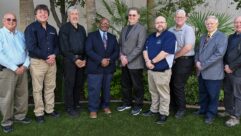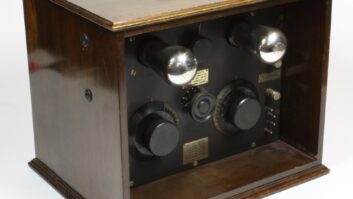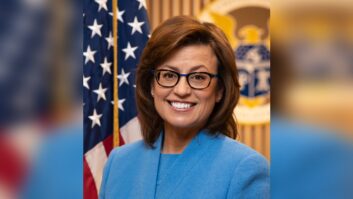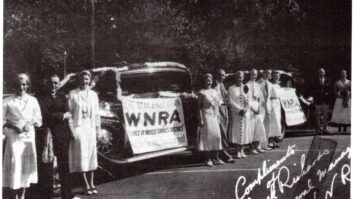Layoffs Herald Change in the House of IBOC
Broadcasters were stunned to learn that Ibiquity Digital Corp. had laid off several top managers in July, including one of the founders of USA Digital Radio, the forerunner to Ibiquity. Some wondered what else was to come from the company as it strives to bring its digital radio technology to market.
Terminated as of the end of July were positions for E. Glynn Walden, vice president of broadcast engineering; Rick Martinson, vice president of program management; and Gerald Marcovsky, senior legal adviser. The move was made for cost-cutting reasons, sources said.
Ibiquity declined all comment on the issue, including the nature of the reasons the individuals left the company. After Radio World broke the story, the company released a statement about Walden’s departure, calling Walden “one of the original visionaries for IBOC digital radio. Glynn should be very proud of his accomplishments, and we are honored to have had him as an employee. We wish him all the best in his future endeavors.”
Ibiquity would not comment on how the duties of the engineers no longer with the company will be handled.
Walden and Martinson had worked on IBOC development for several years. Walden in particular was described as “the father of IBOC” or similar nicknames by many in the industry. Walden, several said, was the “face” of IBOC for broadcasters in this country and abroad.
Martinson was appointed director of digital radio broadcast development in 1996. He handled in-house duties of technical development while Walden focused on field trials and other outside testing, according to Ibiquity’s Web site. Walden was the technical representative for Ibiquity on standards-setting groups along with attorney Al Shuldiner, who remains with the company.
Marcovsky joined the company in 1998.
‘Incredibly shocked’
The news stunned radio engineers.
“I am furious,” said one RF source involved in the digital rollout. “It makes no sense for him (Walden) to go out the door.”
“It’s a confidence-breaker for me,” said a broadcast engineering source.
“I’m not sure what message this is going to send to the industry,” about IBOC development, a source with the NRSC said. “This is strangely timed.”
“I’m incredibly shocked and disappointed. … Many broadcasters think he is the most reliable and dependable contact” at the company, said another observer, Milford Smith, chairman of the DAB Subcommittee of the National Radio Systems Committee.
“I am personally familiar with the incredible work ethic he has brought to this.” Smith worked with Walden on many National Radio Systems Committee and NAB committee efforts.
Receiver, transmitter, hardware and software experts as well as broadcasters contacted for this story characterize Ibiquity as a company moving from a technology development organization to one with a focus on marketing and sales.
A company must do what it can to survive and get the product to market, several observers said, which may mean hard choices about how much in salaries it can afford to pay vs. the skill sets needed.
The satellite radio companies have gone through leadership changes as they made the transition. Now Ibiquity Digital seems to be going through a similar transition, although Ibiquity has always had a much smaller budget than Sirius or XM Satellite Radio had at their disposal for launch.
Personnel changes
Such organizations typically shed some technical talent in favor of marketers. In Ibiquity’s case, that process has begun; broadcast sources predicted that the July layoffs are only the beginning of personnel changes to come.
Sources close to Ibiquity and its board of directors also said the company had to reduce its cash “burn” rate, pegged by one source at roughly $2.1 million a month. Ibiquity, they said, needed to stretch out its cash on hand, and planned to refinance soon.
Of the nine board members of the privately held company, four represent broadcast companies: Gannett Co., Radio One, Clear Channel Radio and Infinity Broadcasting. There are representatives from the former Lucent Technologies’ new ventures group and three venture capital companies: Grotech Capital Group, Flatiron Partners and Pequot Capital.
Ibiquity President/CEO Robert Struble is chairman of the Ibiquity board. The four venture capitalists on the board are part of a larger group of 13 institutional investors.
Sources close to the board said that in the most recent round of financing, in which Ibiquity raised roughly $100 million, broadcasters did not reinvest much money compared to the amount put up by the venture capitalists. “There’s some resentment there,” one source said.
“Ibiquity has made a clear statement to its investors it’s moving forward,” said one observer.
Many participants believed that the “pause” in NRSC standards setting, seen as a setback in Ibiquity’s digital rollout, contributed to the personnel changes. The slowdown caused by the PAC codec issue translates into less cash coming in immediately via broadcast HD Radio licenses. It also delays the timetable for licensing revenue to Ibiquity from receiver sales.
The codec issue was unresolved at presstime. Sources also cautioned that a decision to switch codecs had not been made by Ibiquity. The company has been pursuing parallel paths with different codecs to resolve audio quality issues on AM at low bit rates.
‘Soon’
A company spokesman said, “We’re moving forward. We have a plan as to what we’re going to do. We’ll announce it as soon as we possibly can.”
A Kenwood spokesman said the receiver maker still has confidence in Ibiquity and IBOC. Kenwood shipped 100 test receivers to Ibiquity for stations on the air with the digital radio technology.
Kenwood spokesman Bob Law said that even if Ibiquity changes codecs, receiver production would remain on track.
“If there’s a change made after production is completed, we would have the ability to make changes to the unit if required. It’s a software change,” he said.
Law said personnel changes are to be expected in a company making a transition such as the one in which Ibiquity is involved.
“The responsibilities and what they have to accomplish now are much different than over the past 10 years.”
He said he’s seen such changes many times in the years as he has watched other media go digital. He cautioned those who he called naysayers about terrestrial radio going digital.
“The technology has been proven. If the broadcasters want to block this and slow it down, I’ll sell more satellite radio. The consumer wants digital. If (broadcasters) want to remain in the analog space, they will go the way of the cassette.”
Asked how changing codecs might affect receiver chip production, Philips spokesman Jack Morgan said, “We think there’s enough headroom in the computer performance chip so Ibiquity can upgrade their compression and decompression software for some period of time.”
Sources close to Ibiquity have said aacPlus uses more computing power than does PAC.












